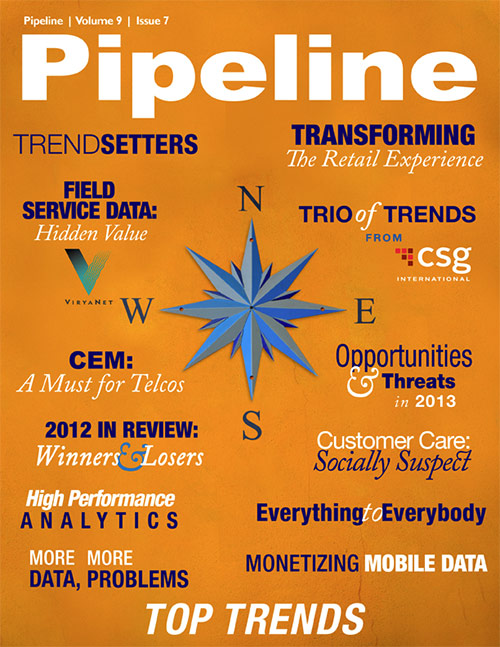2012 in Review: Winners and Losers
The realization of these revenues is still some ways off, at least at the enormous levels being forecast. However, there is definitely evidence of a long game being played. “Verizon acquiring Hughes Telematics, and some of the component certification they are doing for LTE, really pushes them out into M2M,” says Ruzicka. Investments like that have a clear present value but also set the stage for new revenue streams down the line. These long-term strategists are poised to be the winners, while those becoming overleveraged in search of a short-term return will stumble and fall.
New connections
“On both the vendor and service-provider sides, those companies that are hanging onto TDM technologies” — e.g., SONET, T-1s, etc. — “are fast becoming the laggards,” says Craig Clausen of NPRG. “While carriers can milk these for a bit longer since their customers won’t cut the cords overnight, vendors that have catered to these carriers and [are] addressing their TDM equipment requirements have felt the pinch more acutely.” Clausen notes that the ILECs, in particular, continue to fall behind, and “the distance between them and the rest of the pack will be even more noticeable during 2013.”
The transition is painful as well. As I write this I see that SK Telecom’s third-quarter profits have declined 54.2 percent from a year ago, depressed by higher marketing costs and new infrastructure investment. Building the future and attracting new customers is expensive, though it may not be as expensive in the long run as doing nothing.
The alternatives? All-IP networks of various forms certainly play a role, whether wireless or wireline. And in terms of actual pipes, Ethernet made a splash in 2012. Who’d have thought that the big E would be trend-worthy this year? It’s been particularly crucial as a wireless backhaul technology, and a report from Ovum Research estimates that by 2015, 88 percent of backhaul connections will be carried over Ethernet. Metro Ethernet hasn’t been universally adopted, but the benefits, particularly in terms of cost savings, have been enjoyed by some unlikely providers.“The cable MSOs— particularly Comcast, Cox and Time Warner Cable— have been a collective surprise during 2012,” says Clausen. “They’ve made significant and meaningful progress in providing Ethernet and fiber-based services as they move further upstream in terms of the size of the businesses they can serve.”
The road ahead
As we close the book on another year, we’ll be on the lookout for how these trends play out in the year to come. There are sure to be new developments, and with those developments will come new winners and losers. Stay tuned.



















